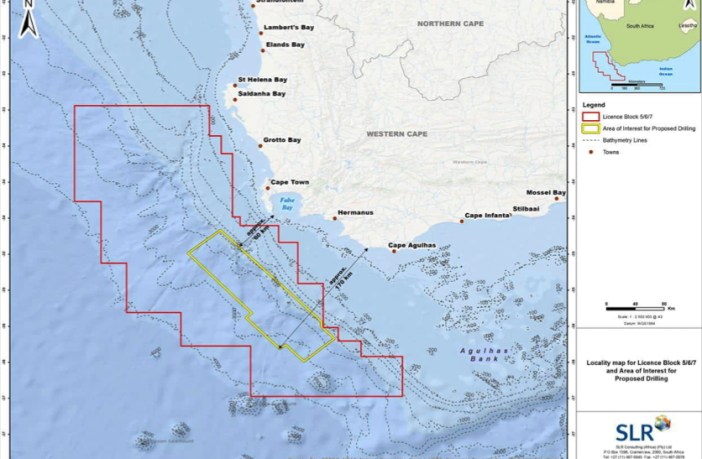- The Green Connection and Natural Justice have approached the High Court in the interests of protecting the coastal environment and the communities who rely on it for their livelihoods.
- Today, the organisations announce their joint legal challenge against the decision to grant TotalEnergies EP South Africa (TEEPSA) environmental authorisation for exploratory drilling in block 5/6/7, located off the coast between Cape Town and Cape Agulhas.
The respondents include the Minister and the Director-General of the Department of Mineral Resources and Energy (DMRE), who initially granted the Environmental Authorisation, as well as the Minister of the Department of Forestry, Fisheries, and the Environment (DFFE) who dismissed the appeals made by more than 20 people and organisations against this decision.
The Green Connection’s Strategic Lead, Liziwe McDaid says, “We remain committed to good governance, ensuring that development decisions are made to ensure the sustainable management of our oceans. We do not believe that the DMRE’s decision to grant environmental authorisation and DFFE Minister Creecy’s subsequent dismissal of appeals were in the public interest, for both current and future generations. This is why this legal action is so critical because it challenges decisions that could have far-reaching impacts on the wellbeing of coastal communities and the ocean that they depend on.”
The Review Application
The legal grounds for the review include government’s failure to assess the socio-economic impacts of a potential oil spill on local fisheries, while also ignoring the climate change impacts associated with oil or gas usage. The Green Connection and Natural Justice state that they are also concerned over the lack of proper evaluation of Oil Spill Blowout Contingency Plans. Furthermore, the organisations state that government failed to adequately consider the requirements of the Integrated Coastal Management Act (ICMA) and ignored the impacts of the drilling activities extending to Namibia and international waters.
According to Melissa Groenink, Programme Manager at Natural Justice, “Our legal challenge is grounded in principles of good governance and environmental protection. We believe that, in order to promote and ensure a healthy democracy, the decision-making process must adhere to our country’s legal frameworks, in this instance, the National Environmental Management Act (NEMA) and the ICMA. These laws prioritise the conservation and protection of our coastal resources, while also promoting meaningful public participation.”
“Many South Africans may not realise that the law defines our coast as “public property” which is owned by citizens and held in trust by the State. This means that decisions taken by Ministers regarding the management of our oceans, must take into consideration the need to conserve and protect the coast for the benefit of the country’s citizens. The potential negative ecological consequences of the proposed exploratory drilling, and the resulting impacts on coastal communities, is why we are compelled to act. Increasing investment in oil and gas projects threatens our climate and threatens the resilience of communities all over the world to adapt to that changing climate,” adds Melissa Groenink.
The Green Connection’s Community Outreach Coordinator, Neville van Rooy says, “At its core, this legal challenge is simply about good governance and protecting the environment we depend on. Consider that small-scale fishers have already seen some concerning changes to available fish stocks or think about the devastating floods that have ravaged parts of the country. We believe that these are the results of global short-term thinking and poor decisions. This is why we challenge this decision, to uphold the principles of sustainable development, to respond to climate change and protect the rights of present and future generations.”
The legal action comes amidst growing global concerns over climate change and the obligation to transition towards less harmful renewable energy sources. South Africa is amongst the top 15 largest emitters of carbon dioxide globally, and the largest emitter in Africa. South Africa must work harder to fulfil its commitment to reducing its carbon emissions. The proposed exploration contradicts international climate obligations and jeopardises efforts to mitigate global temperature rise.
“Climate justice means that the decisions made by government must have human rights and environmental protection at its centre. And since this decision may affect the livelihoods of small-scale fishers who have been depending on the ocean for generations, we remain steadfast in our commitment to eco-justice in the public interest,” adds van Rooy.
Source: The Green Connection















